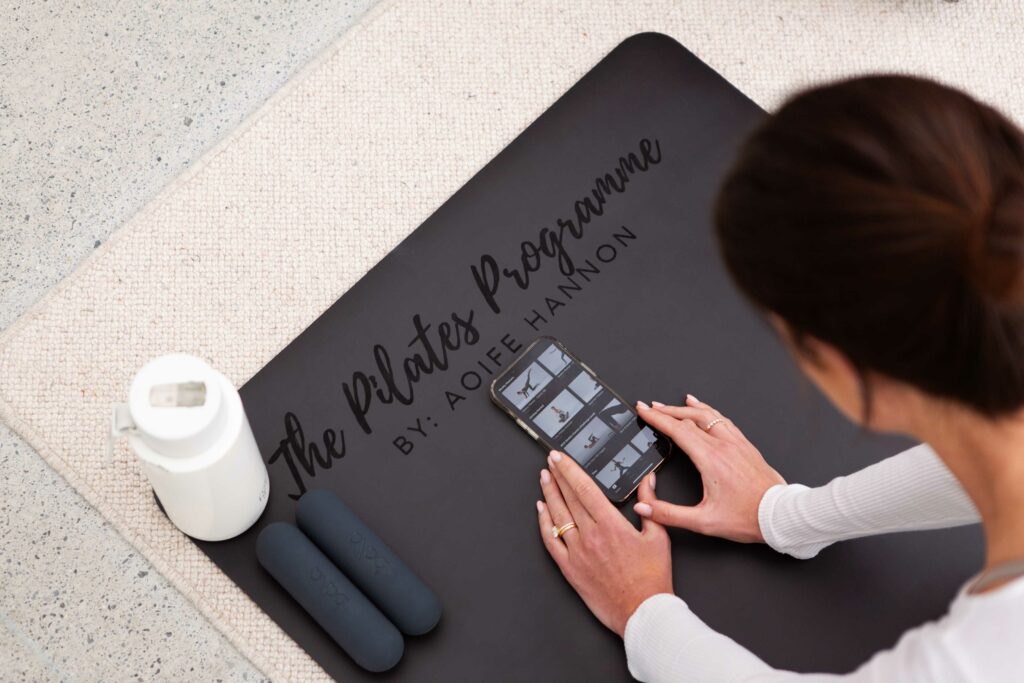Balancing Your Hormones
01 Nov 2024There’s been an increasing buzz in the media about balancing our hormones, particularly targeting women. You’ll see people turning to supplement powders, fasting, seed cycling routines, and other trends that often leave us feeling confused and ready to throw in the towel. These trends both oversimplify and over complicate the topic at the same time. Let’s break it down together.

What are hormones? How do they affect me?
Hormones are like text messages that travel around your body, sending important information to different organs to keep things running smoothly, keeping the body balanced and working properly.
- Mood and Stress: Hormones like serotonin, cortisol, dopamine, and oxytocin help manage your emotions and mood. Adrenaline increases heart rate and helps your body respond to stress
- Metabolism, Energy: Insulin and thyroid hormones regulate how your body uses energy and maintains blood sugar.
- Reproductive Health: Oestrogen, progesterone, and testosterone play a key role in sexual health and fertility.
- Sleep and Appetite: Melatonin, ghrelin, and leptin control your sleep patterns and hunger signals.
Wow, that’s a lot of science – stay with me. Simply put, it’s important to understand that we have many many hormones in our body and they all have different jobs.
When might my hormones become imbalanced?
Hormonal fluctuations are more common during particular times in our lives, like puberty, menopause, pregnancy, and menstruation, as well as on a daily basis. These fluctuations are normal, and no hormone is meant to remain static. For chronic conditions such as type 1 diabetes there is an imbalance of insulin, or during jet lag there is a disruption of melatonin, or a surge of adrenaline after a rollercoaster ride.
When these fluctuations cause disruptions in the body’s normal functions, we may want to re-establish balance. Sometimes we notice this ourselves, while at other times, a medical professional may identify the imbalance.
What can we do to support our hormonal health?
Don’t worry, supporting your hormonal health doesn’t have to be complicated. A few small adjustments in your routine can make a big difference. As mentioned, many hormones fluctuate due to factors unrelated to diet. Lifestyle changes should come first.
Self Care and Mindful Eating
Prioritise sleep, rest, and recovery and looking after your mental health. Following that, consider how you eat, not just what you eat. Eating mindfully and slowing down can bring your body from a ‘fight or flight’ state to calmness, which ensures that stress hormones like cortisol aren’t unnecessarily elevated, allowing you to better tap into your hunger and fullness signals.
Timing Your Meals
Cortisol is naturally highest in the morning, so starting the day with intense exercise on an empty stomach can further elevate those levels, leaving you feeling stressed.Try to eat first thing in the morning. If that’s not possible, and you decide to train fasted, opt for lower-intensity activities, like a class from the Stretch or Yoga & Breathwork section in the TPP app instead.
Exercising mindfully

Exercise is an important part of hormonal health, but overdoing it can sometimes affect reproductive hormones like luteinising hormone (LH) and follicle-stimulating hormone (FSH), which are vital for ovulation.
Engaging in a pilates class suited to your needs, or choosing the right exercise for you can help release endorphins, which are also hormones. Endorphins, along with serotonin, released during and after exercise, can make you feel fantastic.
Fuelling Consistently
Alongside supporting reproductive hormones, eating adequate calories at consistent intervals also regulates hunger and fullness hormones. Over-restricting food groups or calories can trigger the release of hunger hormones, such as ghrelin and leptin, leading to what could be considered a hormonal imbalance.
I encourage you to reread these paragraphs slowly and consider whether you may be undereating, eating irregularly and/or overtraining. Hopefully it resonates with some readers the effect that this can have on our bodies as a system.
You can revisit our blog on intuitive eating to learn about eating patterns and how to treat yourself with kindness.
What about diet?
Now that we’ve covered lifestyle factors, let’s talk about how the foods you choose can help support your hormones. Eating a meal that is balanced care really helps avoid some hormonal fluctuations.
Balanced Meals
- Protein: Helps regulate appetite hormones by decreasing ghrelin (hunger hormone) and increasing fullness.
- Carbohydrates: Fibre supports fullness and helps regulate oestrogen.
- Fats: Healthy fats improve insulin sensitivity and support healthy cortisol levels.
- Micronutrients: B vitamins, Vitamin D, and magnesium help regulate oestrogen.
- Probiotics: Support gut health and overall hormone balance.
Hormone Balancing Smoothie:

This smoothie alone isn’t a complete meal, but it makes a great snack between meals or pairs well with a sandwich for lunch or eggs on toast for breakfast. As you may have guessed, it may not instantly balance your hormones, but it can be a healthy habit to take you one step of the way.
Ingredients:
- 1 handful of mixed frozen berries
- 2 tbsp oats
- 2-3 walnuts
- 1 tsp peanut butter
- 1 small banana or ½ large (fresh or frozen)
- 300ml soy milk/cow’s milk
- A dollop of yoghurt (2 tbsp)
- Honey (to taste)
Method:
Add all ingredients to a blender and blend until smooth. Top with seeds for added crunch.
If you have specific goals related to PCOS or hypothalamic amenorrhea, you may benefit from adjusting the quantities of these ingredients, possibly increasing your overall energy intake and healthy fats. Consider reaching out to a dietitian to learn more.

By: Lorna Ryan, CORU Registered Dietitian DI046177
Lorna is a CORU registered, FODMAP trained dietitian with a love for all areas of nutrition. With additional training in IBS, Lorna has strong interests in gut health and fostering a positive relationship with food. Lorna has worked in hospital settings in the early stages of her career, before gradually transitioning into management to blend her passions and is now managing a paediatric allied health professional clinic, Spot Therapy Hub in Sydney, Australia.


